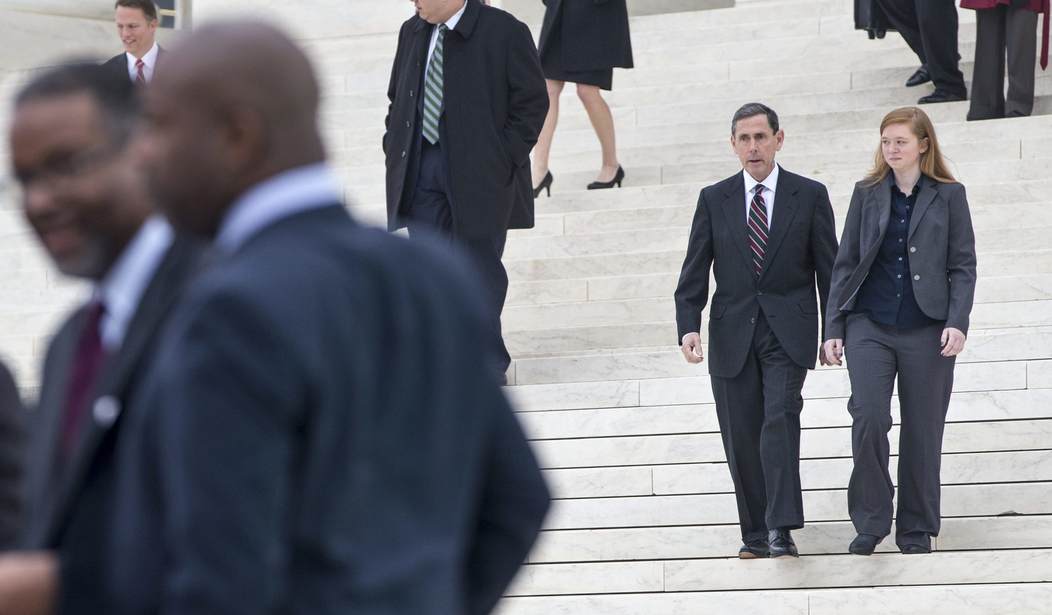WASHINGTON — While Democrats were unhappy with the Supreme Court’s deadlock on United States v Texas, effectively leaving a lower court’s injunction against President Obama’s immigration executive actions in place, they were pleased with another high court ruling today involving Texas.
The Supreme Court ruled 4-3 in Fisher v University of Texas at Austin that a “race-conscious” admissions program is lawful under the Equal Protection Clause.
Abigail Fisher, a white student, was denied admission to the university’s 2008 freshman class and sued, alleging that the University’s consideration of race in admissions disadvantaged her and other white applicants.
Justice Anthony Kennedy delivered the majority opinion, while Justice Sam Alito filed the dissent. Justice Elena Kagan had recused herself from the case because of her job as solicitor general when the Justice Department got involved.
“Petitioner argues further that it was unnecessary to consider race because such consideration had only a minor impact on the number of minority students the school admitted,” said the ruling. “But the record shows that the consideration of race has had a meaningful, if still limited, effect on freshman class diversity. That race consciousness played a role in only a small portion of admissions decisions should be a hallmark of narrow tailoring, not evidence of unconstitutionality.”
“I’m pleased that the Supreme Court upheld the basic notion that diversity is an important value in our society and that this country should provide a high quality education to all our young people regardless of their background,” President Obama said in the White House briefing room today. “We are not a country that guarantees equal outcomes, but we do strive to provide an equal shot to everybody and that’s what was upheld today.”
House Judiciary Committee Ranking Member John Conyers, Jr. (D-Mich.), Subcommittee on Crime, Terrorism, and Homeland Security Ranking Member Sheila Jackson Lee (D-Texas) and Subcommittee on the Constitution and Civil Justice Ranking Member Steve Cohen (D-Tenn.) released a joint statement declaring “this precedent should send the signal that this Court has grown weary of the constant array of challenges to affirmative action plans by test-case litigants like Fisher.”
“In a globalized and increasingly interconnected world, the nation that succeeds is the one best positioned to adapt to a world of differences — cultural, religious, economic, social, racial, and political,” the House lawmakers said. “Given the challenges facing our nation, it is more important than ever before that our institutions of higher learning prepare our diverse student population to lead and innovate into the 21st century.”
Congressional Black Caucus chairman G.K. Butterfield (D-N.C.) said any other outcome would have had “a devastating impact on affirmative action programs and diversity in our institutions of higher education across the country.”
“Diversity in higher education is especially important and serves as a pathway for an American workforce that reflects the full racial and ethnic makeup of this country at all levels of employment,” Butterfield said in a statement issued by the CBC.
“For many Americans, particularly African-Americans, racism is still a fact of life. Members of the CBC vow to continue our efforts to lessen the burdens of racism in our communities to ensure all Americans have equal access, including access to quality education, and the right to achieve the American dream.”
Hillary Clinton called the ruling “a win for all Americans.”
“It means that universities can continue to make diversity and inclusion central goals of their admissions processes, and means our college campuses will continue to be places where young adults of all backgrounds can learn from each other,” she said.









Join the conversation as a VIP Member